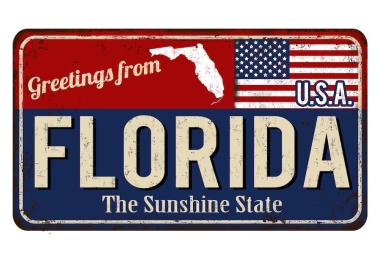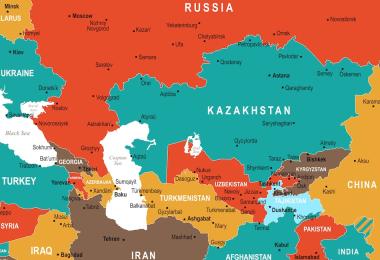It’s easy to pick the 10 most influential distributors in the US. Just get a list of the 10 biggest wholesalers, who control more than 72% of the US market, and you’re set.
Or are you? Given the infamous complexity of US liquor laws, are those 10 really the most important? Or does something else matter besides size? After all, there are some 4,000 distributors in the country.
If the top 10 are the only wholesalers who count, what do the other 3,990 do?
In this, figuring out who matters most is as complicated as the US three-tier system, which requires a distributor to handle the transaction every time a bottle of wine is sold from a producer to a restaurant or retailer – and where the law is different in every state. If size were the only criteria, then a company like Kermit Lynch, which distributes its renowned French and Italian imports in California, wouldn’t count.
In addition, consolidation among the biggest distributors has seen them drop important brands, as they’ve “rationalised their portfolios”. Even six- and seven-figure producers have had to find new wholesalers over the past couple of years. It’s no surprise then, that when number one Southern Wine & Spirits merged with number four Glazer’s last year, the new company’s mantra was “Big is the new small”.
Hence, size matters, but so do location and portfolio. Some smaller companies added to their already strong portfolios when the biggest distributors dumped brands, while others, already established in particular parts of the country, have been able to thrive despite the massive competition. It’s also important to note that distributor portfolios can vary by state, so the same brand can be represented by different wholesalers in different states, further complicating the issue.
These 10 distributors, then, offer a combination of size, service, and portfolio. The list was compiled after interviews with producers, distributors, and retailers, who asked not to be identified because they worked for distributors or worked with them, and didn’t want to want be seen offending or criticising anyone.
Southern Glazer’s
Sales: $17bn, 44 states, District of Columbia
Key brands: E&J Gallo, Skinnygirl, Kosta Browne, LVMH, Louis Latour
Southern Glazer’s was formed in 2016 when Miami-based Southern Wine and Spirits, the biggest wholesaler in the US, merged with Dallas-based Glazer’s, then the fourth-biggest distributor. It was an unprecedented move, even for the rapidly consolidating US wholesale business. The combined company, with 20,000 employees, sells more than 150m cases of wine and spirits, controls almost one-quarter of the market, and covers nearly 90% of the US drinking age population. It’s so big that it’s the seventeenth-largest company on Forbes’ list of the top 25 privately held US firms. The key to the merger was consolidation among suppliers, who wanted distributors who were big enough to handle their business more effectively and more efficiently. One result of the merger: The new company picked up Bacardi’s portfolio, worth $1.3bn, and which included its namesake rums, Dewar’s scotch, Grey Goose vodka, and the Martini & Rossi sparkling wines.
Republic National (RNDC)
Sales: $7bn, 19 states, District of Columbia
Key brands: Banfi, Brown-Forman, Constellation Brands, Delicato
RNDC is the second-biggest distributor in the US, formed in 2007 after a merger between Republic Beverage and National Distributing. It controls some 12% of the US market, and is 69th on the Forbes top 100 list. In this, RNDC is the result of the first of the industry megamergers, and many observers expect it to get bigger, either through a merger or acquisition, in the wake of the Southern Glazer’s deal. That’s not just because size matters in terms of sales, but because it matters in the number of states where it does business. One reason why RNDC lost Bacardi – as well as Campari in 14 of its states – to Southern Glazer’s, is that producers want one company with enough reach across the US to handle its business in every state.
Breakthru Beverage
Sales: $6 bn, 14 states, District of Columbia
Key brands: E&J Gallo, Diageo, Moët Hennessy
When Chicago’s Wirtz Beverage merged with Charmer Sunbelt at the end of 2015, the industry was stunned. Not only were the sixth- and third-biggest US wholesalers combining, but this was the first important merger or acquisition in almost a decade. In addition, Wirtz had been a fixture in Chicago since Prohibition, and the family owned the Chicago Blackhawks ice hockey team and the United Center arena, home to the Blackhawks and the Chicago Bulls basketball team. The new company, called Breakthru Beverage, has more than 7,000 employees and is based in New York. And it’s on the prowl to get bigger – it has been trying to buy the $2bn Empire Merchants, an important New York state wholesaler.
Young’s Market
Sales: $3.2bn, 10 states
Key brands: Korbel, Trinchero, Hess, King Estate
Young’s Market, founded as a grocery in Los Angeles in 1888, has been in the family for five generations. It has been an important West Coast distributor since 1940, and has successfully navigated the industry’s ups and downs since then, expanding to Washington, Oregon, and Arizona at the turn of the century. Despite its smaller footprint, it controls about 6% of the US market and has 3,400 employees. Talk to West Coast producers, and Young’s is a name that comes up almost immediately as a key distributor in that part of the country.
Empire Merchants
Sales: $2bn, 1 state
Key brands: E&J Gallo, Treasury Wine Estates, Bronco, Kobrand
How important is the New York City market in the US wine business? So important that Empire, even though it operates only in the New York metro area, is the fifth-biggest distributor in the country – even bigger than Southern Glazer’s in its market area. Its 1,200 employees service almost 11,000 accounts, mind-boggling numbers that again demonstrate just how large and powerful New York City is in the scheme of things. Empire was formed in 2007, a partnership that built on a previous merger between Sunbelt Charmer and a family-owned New York City importer.
Johnson Brothers
Sales: $2bn, 22 states
Key brands: Deutsch, Treasury Wine Estates, E&J Gallo, Trinchero
Johnson Brothers, despite its Midwestern roots, has expanded into a variety of important markets, including New York, Las Vegas, and Florida, and has more than 2,200 employees. Its reputation is such that even producers who aren’t in its states speak highly of it, especially for service, and especially in the smaller states, like Iowa and Indiana, where it does business.
Martignetti Companies
Sales: $1.2bn, five states
Key brands: Treasury Wine Estates, Deutsch, Bronco, Moët Hennessy, E& J Gallo
Martignetti, from its headquarters in suburban Boston, is one of the most important distributors in the Northeast, even though it’s not in New York state. It has also made judicious use of acquisitions over the last decade, adding distribution rights in Massachusetts and Rhode Island, and adding Maine, a control state, to its footprint. The 1,200-employee company got its start as a grocery store in Boston’s historic North End, expanding into retail wine sales and finally distribution in the 1970s.
Allied Beverage
Sales: $900m, two states
Key brands: Deutsch, Concha y Toro, Free Flow, 3 Badge
Allied was formed by a merger of two of New Jersey’s oldest distributors in 1996, and added a third in 1999. In this, each smaller company realised that they weren’t big enough separately to compete, and needed to be bigger to service its producers. It also distributes in Pennsylvania through the state-owned fine wine stores.
Wine Warehouse
Sales: $400m, one state
Key brands: E&J Gallo, Dreyfus Ashby, 3 Badge, Terlato, Joseph Drouhin
California’s three-tier system is more flexible than in most of the rest of the country, so many wineries are allowed to do their own distribution. That Wine Warehouse’s book lists 10,000 labels in a state that has Young’s, companies formed to distribute Bronco and Kendall-Jackson, and self-distribution speaks to its strengths over its 40 years of business. It carries notable labels from France and especially Champagne.
Major Brands
Sales: $200m, 1 state
Key brands: E&J Gallo, Terlato, The Wine Group, Constellation, Jackson Family
Why is a comparatively small distributor in Missouri, a state not known for wine sales, on this list? Because the locally owned Major has thrived in an environment that has forced other, smaller distributors to merge or to be acquired. In this, it has negotiated a path between meeting the demands of the biggest wine producers in the world and remaining nimble enough to serve even its smallest suppliers. Its portfolio of Missouri wines, among the best regional books in the country, proves that point. Along the way, it also bested Diageo and Glazer’s in a 2014 lawsuit when Diageo tried to move its brands to Glazer’s. The two companies settled out of court with Major in what most considered a victory for the latter.
Eight distributors worth mentioning
Fedway Associates: This New Jersey distributor’s book includes Jackson Family, Terlato, and Constellation, with annual sales of almost $800m.
Galaxy Wine: This Oregon wholesaler and importer handles 400 producers, with a top-flight list of Oregon and Washington wineries, as well as some leading red and white Burgundies.
The Winebow Group: This importer and distributor is in 19 states and the District of Columbia. It was assembled over the past decade with acquisitions, including The Country Vintner and Stacole Fine Wines.
Classic Wines: This Denver-based distributor was formed by former RNDC and Breakthru employees, and it works with companies like the highly respected North Berkeley Imports, Rudi Wiest Selections, and Vintage ’59.
A&B Imports: This wholesaler does business in Washington and Oregon, and its book includes Bonny Doon, the terrific value-oriented imports from Winesellers, Ltd., and legendary importer Vineyard Brands.
Kysela Pere et Fils: This importer distributes its wines in Virginia, Maryland, and the District of Columbia, and no less than Robert Parker has praised it for its eclectic lineup of wines, be it from Portugal, Spain, France, or Italy.
Farm Wine Imports: This Berkeley, California-based importer distributes its wines in California, and its portfolio is stellar – Louis/Dressner, José Pastor, and Thomas Calder.
International Wine & Spirits: This Louisiana distributor’s book includes the impeccable Olé Imports, which does Spanish wine, the Australian Pewsey Vale, and the French M. Chapoutier.








